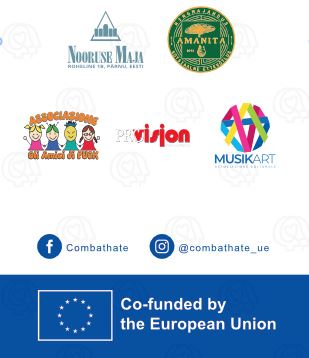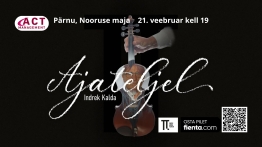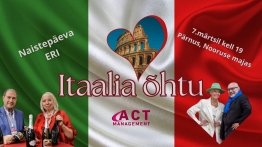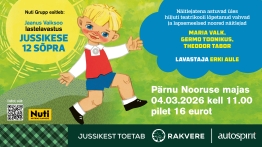 .
.
Project Title and Context
* Project Name: COMBATHATE (Combating Hate Speech and Hate Crimes Against Individuals with Mental Disabilities)
* Project Number: 101205522
* EU Programme: Citizens, Equality, Rights and Values (CERV)
You can find more detailed information here
Why This Project?
Individuals with mental disabilities frequently face hate speech and hate crimes that undermine their dignity, safety, and well-being. COMBATHATE seeks to address this challenge by developing tailored support systems, raising public awareness, and strengthening cooperation between civil society and public authorities (including law enforcement).
Project consotcium:

Overall Aim and Objectives
Overall Aim
Create a safer, more inclusive environment where people with mental disabilities (particularly ages 18–35) can live free from hate speech and hate crimes, supported by robust psychological and legal mechanisms.
Key Objectives:
1. Needs Assessment: Determine the core challenges faced by individuals with mental disabilities regarding hate speech and hate crimes (WP2).
2. Develop Psychological and Legal Support: Create frameworks (protocols, training materials) that directly address the mental health and legal protection needs of the target group (WP2 & WP3).
3. Implement & Refine Support: Pilot these support mechanisms in real settings, evaluate their effectiveness, and continuously adapt based on feedback (WP3).
4. Engage Law Enforcement & Authorities: Improve collaboration via workshops, protocols, and training sessions, ensuring consistent responses to hate incidents (WP4).
5. Public Awareness Campaign: Educate the broader community, reduce stigma, and foster non-discrimination through targeted campaigns, events, and media engagement (WP5).
6. Monitoring & Evaluation: Collect and analyze data on project impact, ensuring continuous improvements and sustainability.
Consortium and Roles:
The project involves five partners, each bringing unique expertise:
1. Nooruse Maja (Estonia) – Coordinator (WP1)
o Overall project management and coordination
o Organizing transnational meetings, ensuring compliance, finances, quality control
2. Amanita (Estonia)
o Leading practical implementation of support systems (WP3)
o Workshops, support sessions, data monitoring
3. Gli Amici di PUCK (Italy)
o Leading development of support mechanisms (WP2)
o Creating training materials, carrying out staff training
4. PROVISION (Bulgaria)
o Leading engagement with law enforcement/public authorities (WP4)
o Developing cooperation protocols, training materials for authorities
5. MUSIKART (Italy)
o Leading public awareness and dissemination activities (WP5)
o Running campaign strategy, events, media outreach
Although each partner leads a specific Work Package, all partners contribute to data collection, training sessions, events, deliverables, and final reporting.
Work Packages (WPs) Overview
WP1: Project Management & Coordination
* Leader: Nooruse Maja
* Activities: Kick-off meeting, progress reports, financial monitoring, quality assurance checks, mid-term/final reviews.
* Outcome: Smooth, well-coordinated project implementation; timely deliverables; robust communication among partners.
WP2: Development of Support Mechanisms
* Leader: Gli Amici di PUCK
* Activities:
1. Needs Assessment (D2.1) via surveys/interviews (with people with mental disabilities, carers, authorities).
2. Designing psychological & legal frameworks addressing hate speech/hate crimes.
3. Creating training materials for staff who support individuals with mental disabilities.
Outcome: A clear blueprint of support systems ready for WP3 implementation.
WP3: Practical Implementation of Support Systems
* Leader: Amanita
* Activities:
1. Running workshops and support sessions in local centers.
2. Collecting feedback from beneficiaries and staff.
3. Adjusting the support models as needed for better results.
* Outcome: Real-world validation of the systems, measuring improvements in beneficiaries’ well-being.
WP4: Engagement with Law Enforcement and Public Authorities
* Leader: PROVISION
* Activities:
1. Workshops with police officers, local officials, public administrators.
2. Cooperation protocols to streamline incident reporting and referral for psychological/legal support.
3. Feedback loops to adapt training materials.
* Outcome: Stronger collaboration and aligned procedures among authorities and support providers.
WP5: Public Awareness and Dissemination
* Leader: MUSIKART
* Activities:
1. Awareness campaigns (social media, print materials, local/national press).
2. Public events in each partner country, highlighting project achievements.
3. Ongoing media engagement to reach large audiences, reduce stigma, and promote inclusion.
* Outcome: Greater public understanding of hate speech/crime faced by people with
mental disabilities, more inclusive attitudes, and broad dissemination of project
results.
Key Deliverables & Timeline (Simplified)
Below is a succinct timeline of major deliverables. (Full schedule provided in the official DoA.)
1. D2.1 – Needs Assessment Report (Month 3)
o Survey and interview data from all partners
o Comprehensive analysis of key challenges
2. Staff Training Sessions & Reports (Months 8–10)
o Material on psychological first aid, legal rights, etc.
3. Workshops & Support Sessions (Months 12–16)
o Local engagement with the target group in each country
4. Engagement Workshops with Authorities (Month 20)
o Protocols for improved incident handling
5. Public Events & Awareness Campaigns (Throughout, major events around Months 12, 24)
o Multiple local events per partner
o Visibility, media coverage
6. Progress Reports & Final Report (Months 8, 16, 24)
o Project updates, quality checks, final outcomes
6. Methodology Highlights
* Evidence-Based: Grounded in initial data from WP2’s surveys/interviews (D2.1).
* Iterative Approach: WP3 uses real-time feedback to refine support systems.
* Local & Transnational: Each partner tailors activities to local context; results are shared across the consortium for synergy.
* Inclusive & Ethical: Ensures participant consent, respects privacy, sensitive to mental health considerations.
Expected Impact and Results
1. Enhanced Support:
o Individuals with mental disabilities gain access to psychological first aid and legal advocacy specifically geared toward hate incidents.
2. Greater Awareness & Reduced Stigma:
o Public campaigns aim to educate communities on the harm of hate speech and the importance of inclusivity.
3. Improved Stakeholder Collaboration:
o Law enforcement and local authorities adopt clearer protocols, ensuring more consistent responses to hate speech/crimes.
Policy Influence:
o Results and best practices may inspire local/national policy refinements or
new initiatives beyond the project’s lifespan.
Long-Term Sustainability:
o Partners integrate project outputs into everyday operations and keep the networks active, offering continuous benefits to the target group.
8. Partners’ Responsibilities & Collaboration
* Joint Accountability: All partners are responsible for successful delivery of the project goals.
* Communication: Monthly or bi-weekly calls (or as agreed) plus email updates.
* Document Sharing: Use secure, shared platforms for materials, budgets, deliverables.
* Feedback & Review: Partners review each other’s drafts for clarity, consistency, and alignment with project objectives.
How to Contribute & Next Steps
1. Stay Engaged: Attend project meetings, read progress updates, and share local insights promptly.
2. Meet Deadlines: Provide data, feedback, or deliverable contributions on schedule (especially for WP2, WP3, WP4, WP5 tasks).
3. Dissemination: Amplify project messages through your networks; invite local stakeholders to public events.
4. Ethics & Data Protection: Always follow the standard procedure for informed consent, confidentiality, and safe data storage.
In Summary
COMBATHATE is an ambitious, collaborative effort to assess, address, and reduce hate speech and hate crimes against people with mental disabilities. By leveraging each partner’s strengths—ranging from research and training development to on-the-ground implementation, authority engagement, and public outreach—we aim to create a lasting impact that fosters acceptance, supports the vulnerable, and builds safer communities across the consortium’s regions.









